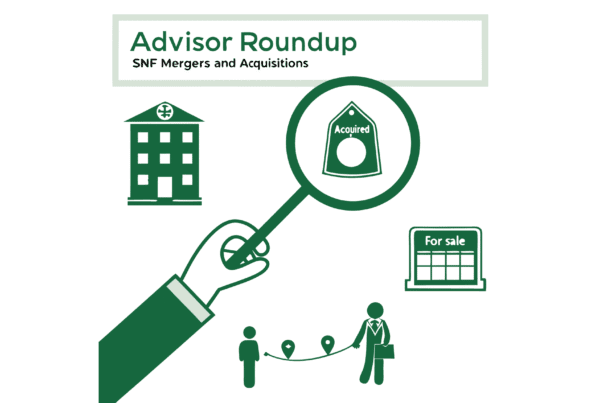The market for Applied Behavior Analysis (ABA) services in Tennessee is experiencing significant growth, driven by high demand and strong investor interest. For owners of established School and Community-Based ABA practices, this presents a unique window of opportunity. Selling your practice is a major decision that involves more than just finding a buyer. It requires careful preparation and an understanding of the market to ensure you secure the best possible outcome for your legacy, your team, and your financial future.
Curious about what your practice might be worth in today’s market?
Market Overview
The current environment for ABA practices in Tennessee is strong. The entire U.S. market is projected to grow steadily, and private equity investors are taking notice, leading to a surge in acquisition activity. This trend is amplified in Tennessee, creating a favorable seller’s market.
A Growing Field
The national demand for ABA therapy is expanding, with a projected market growth of 4.8% annually through 2032. This sustained growth makes the sector highly attractive to buyers looking for stable, long-term investments. For you, this means your practice is a valuable asset in a sought-after industry.
Tennessee’s Favorable Climate
A key driver in the state is the 2019 mandate requiring health plans to cover autism therapy services. This legislation has solidified the payment landscape and created a more predictable revenue environment for practices like yours, which is a major point of interest for buyers.
The Rise of Private Equity
Private equity firms have invested billions into the autism services sector. They are actively seeking well-run practices to acquire. This influx of sophisticated buyers means there is capital available, but it also raises the bar for how practices need to be presented and valued.
Key Considerations
When preparing to sell your School and Community-Based ABA practice, buyers will look beyond just your profit and loss statements. They want to see a resilient and well-managed operation. Focusing on a few key areas can significantly strengthen your position.
Here are three areas that buyers will scrutinize:
- Navigating Tennessee Licensing. Buyers need absolute confidence that your practice is fully compliant. This means having impeccable records of your LBA/LABA licenses through the state board, along with current BACB certifications for all relevant staff. Any gaps in documentation can create delays or devalue your practice.
- Managing Staffing and Talent. Staffing is a known challenge across the ABA field. Demonstrating that you have a stable, qualified team and effective strategies for recruiting and retaining talent is a huge advantage. High staff turnover is a red flag for acquirers.
- Demonstrating Community Ties. For a school and community-focused practice, your relationships are a core asset. Buyers will want to understand the strength and history of your partnerships with local school districts and community organizations. Documented referral sources and long-term contracts are powerful evidence of your market position.
Market Activity
The ABA market in Tennessee is not just growing. It is actively consolidating. We are seeing a distinct trend where larger, private equity-backed organizations acquire successful local practices to expand their footprint. This is often referred to as an “add-on” acquisition strategy.
This trend presents both an opportunity and a threat. For practice owners ready to sell, it means there is a pool of motivated, well-funded buyers. These buyers are often looking for strategic fits that can benefit from their larger operational infrastructure, allowing you to secure a premium valuation. However, it also means the competitive landscape is shifting. Waiting too long could mean competing against these larger, consolidated groups, making it harder to maintain market share. Aligning your practice for a sale now, while the market is in this active phase, can be a decisive strategic move.
Timing your practice sale correctly can be the difference between average and premium valuations.
The Sale Process
Selling a medical practice follows a structured process designed to protect your confidentiality while achieving the highest possible value. While it may seem daunting, understanding the basic steps can make the journey feel more manageable. Many unexpected issues arise during the due diligence phase, but proper preparation can ensure a smooth transaction.
Here is a simplified overview of what you can expect:
| Phase | What It Means for You |
|---|---|
| 1. Preparation & Valuation | Getting your financial and operational documents in order so buyers see a clean, professional business. This is where you understand your practice’s true worth. |
| 2. Confidential Marketing | We identify and approach a curated list of qualified buyers on your behalf, using a process that protects the identity of your practice from staff and competitors. |
| 3. Buyer Due Diligence | This is the buyer’s deep-dive review of your practice. They will ask for detailed information on financials, operations, compliance, and more. Being prepared is critical here. |
| 4. Negotiation & Closing | We help you negotiate the final price and terms of the deal, finalize legal documents, and plan for a smooth transition of ownership. |
Valuation
One of the first questions owners ask is, “What is my practice worth?” The answer is more complex than a simple revenue formula. Sophisticated buyers value your practice based on its profitability and future potential, not just its top-line revenue.
More Than Just Revenue
Buyers look at a figure called Adjusted EBITDA (Earnings Before Interest, Taxes, Depreciation, and Amortization). This provides a truer picture of your practice’s cash flow and profitability compared to a simple net income number.
Finding Your Adjusted EBITDA
To get your Adjusted EBITDA, we start with your net income and add back certain expenses that won’t continue under a new owner. This can include your personal auto lease, discretionary travel, or a salary that is above the market rate. This process of “normalizing” expenses almost always results in a higher profitability figure, which directly increases your practice’s value.
What Determines Your Multiple?
Your Adjusted EBITDA is then multiplied by a certain number (the “multiple”) to arrive at your valuation. This multiple is influenced by several factors, including your practice’s size, the diversity of your payer contracts, your reliance on a single provider, and your documented growth opportunities. Preparing your practice in advance can help justify a higher multiple.
A comprehensive valuation is the foundation of a successful practice transition strategy.
Post-Sale Considerations
Finalizing the sale of your practice is a huge milestone, but the work isn’t quite done. A successful transition is one where you have a clear plan for what comes next, both for the practice and for yourself. Thinking about these elements beforehand is a key part of the process.
Here are a few things to plan for:
- Your Legacy and Your Team. A good transition plan ensures continuity of care for clients and provides stability for your staff. Defining how the handover will work protects the culture you’ve built and reassures buyers that the practice will continue to thrive.
- Your Future Role. Do you want to leave immediately, or would you prefer to stay on for a year or two to help with the transition? Some deal structures, like an “earnout,” may require you to stay to hit certain performance targets. Deciding on your ideal involvement early helps find the right type of buyer and deal.
- Your Financial Take-Home. The headline sale price is not what you deposit in the bank. The structure of the sale has major implications for your after-tax proceeds. Proper tax planning before the sale can significantly increase your net financial outcome.
Planning your exit is a journey. With the right information and guidance, you can navigate the process with confidence and achieve a result that honors the hard work you’ve put into building your practice.
The right exit approach depends on your personal and financial objectives.
Frequently Asked Questions
What is driving the growth of the ABA market in Tennessee?
The ABA market in Tennessee is growing due to high demand for autism therapy services, a 2019 state mandate requiring health plans to cover these services, and strong investor interest, especially from private equity firms.
What should I focus on to make my School & Community-Based ABA practice attractive to buyers in Tennessee?
Buyers will look for compliance with Tennessee licensing requirements, a stable and qualified staff with low turnover, and strong community ties through partnerships with local schools and organizations. Demonstrating these will enhance your practice’s appeal.
How is the value of my ABA practice determined when selling?
Valuation is based on Adjusted EBITDA, which reflects your practice’s profitability and cash flow. This figure is then multiplied by a factor influenced by practice size, payer diversity, provider reliance, and growth opportunities. Normalizing expenses can increase profitability and value.
What are the key phases in the sale process of a School & Community-Based ABA practice in Tennessee?
The sale process includes: 1. Preparation & Valuation – organizing documents and understanding your practice’s worth; 2. Confidential Marketing – approaching buyers discreetly; 3. Buyer Due Diligence – detailed buyer review; 4. Negotiation & Closing – finalizing the deal and transition plans.
What should I consider post-sale to ensure a smooth transition and protect my legacy?
Post-sale considerations include planning for your team’s stability and client care continuity, deciding your future role with the practice (immediate exit or transition period), and optimizing financial outcomes through tax planning and sale structure decisions.



